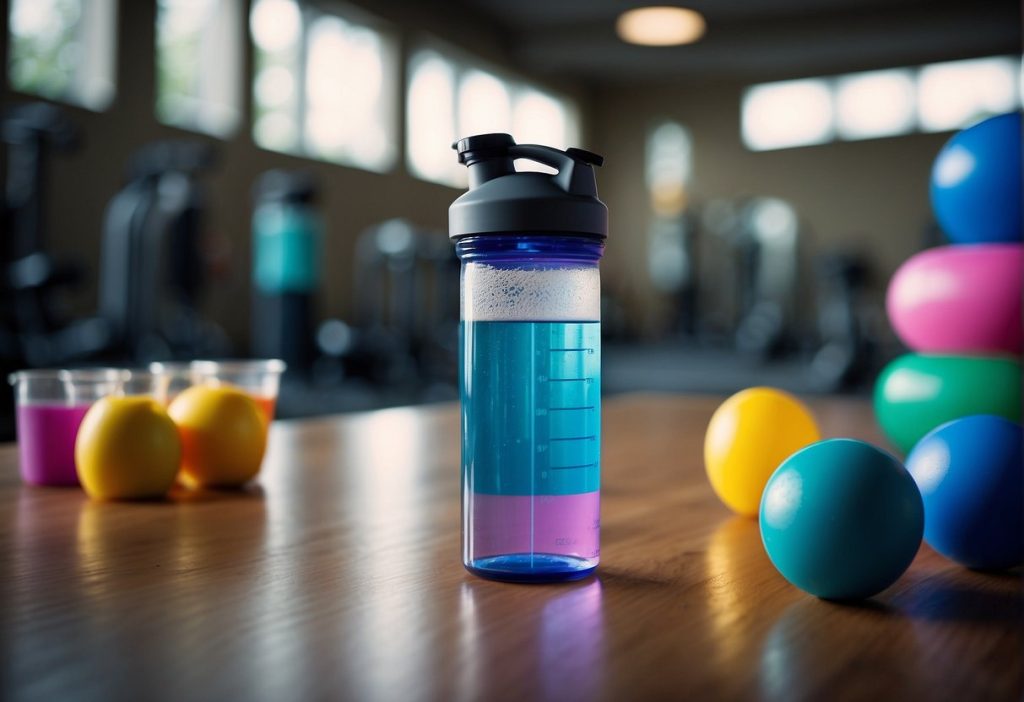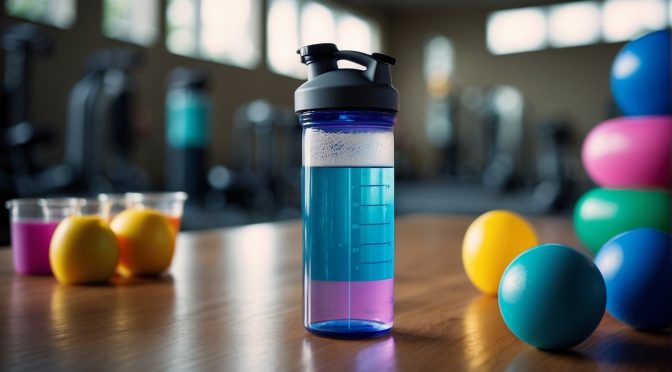After intense exercise, your body enters a state of repair. It seeks to rebuild muscle fibers and replenish energy stores. The nutrients you give your body during this critical period can significantly affect your recovery. They can also affect your muscle function as well as development. Research emphasizes the importance of proper post workout amino intake, the basic units of proteins. This is particularly true after exercising because amino acids help build muscle proteins.

Amino acids come in various forms. Essential amino acids (EAAs) are those the body cannot produce. You must obtain them through diet. Among them, people celebrate the branched-chain amino acids (BCAAs). Leucine, isoleucine, and valine are the BCAAs. They are praised for their role in muscle health. Leucine, in particular, is a powerful trigger for muscle protein synthesis. Incorporating these key amino acids into your post-workout nutrition strategy may enhance recovery. It may also improve muscle repair and promote better athletic performance over time.
Key Takeaways
- Consuming amino acids after a workout aids in recovery and muscle protein synthesis.
- Essential amino acids, and particularly BCAAs, play a crucial role in muscle health.
- Strategic post-workout nutrition can enhance overall athletic performance.
Importance of Post-Workout Amino Intake
The period following your workout is a critical window. You need to feed your muscles the necessary nutrients. Feeding your muscles amino acids and carbohydrates during this time promotes muscle recovery. It also enhances muscle growth.
Understanding Muscle Protein Synthesis
Muscle Protein Synthesis (MPS) is the process your body uses to repair and build muscle fibers. It happens after exercise. Protein, particularly rich in essential amino acids, is vital for initiating MPS. Eating a meal or supplement with enough protein after working out can create a positive protein balance. Muscle growth requires this balance.
Muscle Protein Breakdown: An Obstacle to Muscle Growth
During a workout, muscle tissue undergoes stress, leading to protein breakdown. If you don’t provide your muscles with the proper nutrients after a workout, this breakdown can exceed the rate of protein synthesis. As a result, you may experience muscle loss. To counteract this, your post-workout meal should include amino acids. It should also include carbohydrates. Carbohydrates help replenish glycogen storage and mitigate muscle protein breakdown.
Post-Workout Amino Intake for Muscle Recovery
Keeping your post workout amino intake balanced with carbohydrates is crucial. It promotes muscle recovery. This combination speeds up recovery by:
- Restoring glycogen levels: Carbohydrates convert to glycogen, which muscles use for energy.
- Reducing protein breakdown: Amino acids from protein help repair muscle tissue.
A typical ratio in a post-workout meal might look like this:
| Nutrient | Role in Recovery | Suggested Ratio |
|---|---|---|
| Protein | Muscle repair and growth | 20-40 grams |
| Carbohydrates | Replenishing energy & supports protein synthesis | 40-60 grams |
By focusing on these components, your post-workout nutrition can help maximize your recovery. It can also aid in muscle building efforts.
Essential Amino Acids: The Building Blocks of Proteins

Essential amino acids play a pivotal role in muscle growth and recovery. Understanding their functions and sources is crucial for optimizing post-workout recovery.
Definition and Importance of Essential Amino Acids
Essential amino acids (EAAs) are the building blocks of proteins. Your body cannot synthesize them on its own. These amino acids are vital for various physiological processes. They include muscle repair, growth, and maintaining muscle mass. Adequate intake after exercise is linked to improving muscle recovery and minimizing muscle soreness.
Branched-Chain Amino Acids (BCAAs) are part of essential amino acids (EAAs). They include leucine, isoleucine, and valine. BCAAs are particularly important for muscle protein synthesis. Leucine serves as a key regulator. It stimulates the pathway that leads to muscle building.
Sources of Essential Amino Acids in the Diet
Your diet is the primary source for EAAs. It’s important to consume a variety of protein-rich foods. This ensures you receive all the necessary components. It’s for muscle tissue repair and growth. Here are some examples:
- Animal-Based Sources: Meat, fish, eggs, and dairy products are all high in EAAs, including a good balance of BCAAs.
- Plant-Based Sources: Quinoa, buckwheat, soy, and chickpeas are excellent sources for those following a plant-based diet.
- Supplementation: For convenience, EAA supplements, including BCAA powders, are available. You can easily consume them around workout times.
Incorporate these foods into your post-workout meal. They can promote effective muscle repair. They can also prepare your body for your next training session.
Branched-Chain Amino Acids (BCAAs)
Branched-Chain Amino Acids (BCAAs) play a pivotal role in muscle protein synthesis. They help with recovery after a workout. Understanding their impact on your fitness routine can significantly enhance your muscle repair processes.
Definition and Importance of BCAAs
BCAAs consist of three essential amino acids: leucine, isoleucine, and valine. Your body cannot produce these amino acids, which classifies them as ‘essential’. You must obtain them through your diet or supplements. Protein-rich foods and amino acid supplements contain BCAAs. BCAAs make up a significant portion of the body’s total amino acid pool. Here’s whythe benefits of BCAAs are important for you:
- Muscle Protein Synthesis: BCAAs, and leucine in particular, trigger the muscle-making pathway known as mTOR.
- Energy Production: BCAAs can break down in muscle tissue during exercise to provide additional energy.
- Muscle Repair: BCAAs contribute to repairing damaged muscles, reducing muscle soreness, and promoting muscle recovery.
Role in Muscle Protein Synthesis
During exercise, your body repairs and rebuilds damaged muscle fibers. They know this process as Muscle Protein Synthesis (MPS). BCAAs directly stimulate muscle protein synthesis. They also significantly impact protein turnover. Protein turnover is the balance between protein synthesis and breakdown. Here’s what you need to know about BCAAs and MPS:
- Leucine: Functions as the key to unlocking the process of MPS. Studies have shown that it increases the rate of protein synthesis after exercise.
- Protein Turnover: BCAAs serve as the building blocks of new proteins during the repair phase. They also help regulate the constant process of protein turnover.
- Supplementation: BCAAs come from food. Amino acid supplements can help, especially after workouts. They provide a quick source of these crucial amino acids.
Recovery After Exercise: Maximizing Muscle Repair
After a strenuous workout, your muscles are ready to repair and recover. Eating the right nutrients such as amino acids and balanced macronutrients can significantly enhance this process.
Benefits of Consuming Amino Acids Post-Workout
After exercise, your body enters a catabolic state. It needs protein to begin repairs. Consuming amino acids post-workout aids in:
- Muscle Protein Synthesis: Amino acids are the building blocks for synthesizing new proteins. They also repair muscle damage and promote growth.
- Enhanced Recovery: Accelerated muscle repair reduces soreness. It also prepares your muscles for subsequent workouts more effectively.
| Amino Acid | Role in Recovery |
|---|---|
| Leucine | Stimulates muscle protein synthesis |
| Isoleucine | Increases glucose uptake into cells |
| Valine | Helps in tissue repair and energy production |
It is essential to consume amino acids shortly after working out. This maximizes recovery potential.
Balancing Macronutrients for Optimal Recovery
Alongside amino acids, your recovery meal should balance other macronutrients. This will replenish energy stores and support muscle repair.
- Carbohydrates restore depleted muscle glycogen used during your workout, and they are essential.
- Aim for a ratio of 3:1 or 4:1, carbs to protein, for optimal glycogen synthesis.
- Fats: They’re less critical in the immediate post-workout window. However, they are important for overall health. They can help with sustained energy levels.
Ensure you hydrate adequately. Fluids and electrolytes lost through sweat are crucial for recovery and overall function.
| Macronutrient | Recovery Role |
|---|---|
| Carbohydrates | Replenish glycogen stores |
| Protein | Repair and build muscle tissue |
| Fats | Support overall health |
| Fluids | Restore hydration levels |
| Electrolytes | Maintain nerve and muscle function |
After a workout, give your body the nutrients it needs. This helps you make short- and long-term fitness progress.
Nutrition Strategies for Enhanced Athletic Performance

Your performance hinges on the strategic integration of nutrition tailored to your training. Understanding the role of dietary intake can dramatically impact your athletic abilities.
Adapting Nutrition for Strength and Endurance Athletes
As an athlete focused on muscle strength, your diet should prioritize protein. This supports muscle repair and growth. Aim to eat a meal or snack high in protein within two hours after resistance training. Doing this will maximize muscle protein synthesis. Strategically include carbohydrates to replenish glycogen stores. They are critical for continued performance and recovery.
For endurance training, the balance shifts towards a higher intake of carbohydrates. These are your muscles’ preferred energy source during prolonged activities. Incorporate a mix of complex and simple carbs to sustain energy levels. After exercising, you should still eat protein to help muscles recover. However, eat more carbohydrates than protein. This restores glycogen more efficiently.
The Role of Nutrient Timing in Muscle Development
Nutrient timing is crucial for exercising and building muscle. The timing of your amino acid intake is particularly important. Ingesting amino acids can support muscle protein synthesis. Especially branched-chain amino acids (BCAAs) can help. You can take them before or after your workouts. This practice helps combat muscle breakdown. It’s especially useful as you contend with the natural implications of aging on lean muscle mass.
Immediately post-workout is a crucial window for nutrient absorption. Consuming protein within this timeframe provides the necessary building blocks for muscle repair. Coupling protein with carbohydrates can enhance this effect. It can improve protein balance and replenish energy stores. This creates an optimal environment for muscle recovery and growth.
Post Workout Amino Intake: Frequently Asked Questions
Q: Should I take amino acids after workout?
A: Yes, taking amino acids after a workout can help muscles recover and grow. Amino acids are the building blocks of protein. Protein is essential for repairing and rebuilding muscle tissue. During exercise, it may have broken down. Branched-chain amino acids (BCAAs) like leucine, isoleucine, and valine are often recommended after workouts. They can help reduce muscle soreness and promote muscle protein synthesis.
However, it is important to note that consuming a balanced meal or snack that includes whole food sources of protein can also provide the necessary amino acids for recovery. If you’re considering taking amino acid supplements, consult a healthcare professional or a registered dietitian. Determine if it’s appropriate for your individual needs and goals.
Q: When should I take amino acids for muscle growth?
A: You can consider taking amino acids for muscle growth before, during, or after your workout. Before your workout, amino acids can help prevent muscle fatigue during exercise. During your workout, they can provide a source of energy and support muscle recovery. After your workout, amino acids can aid in muscle repair and growth. It’s important to ensure that you’re consuming a balanced diet. It should have enough protein from whole food sources. This supports overall muscle growth and recovery. As always, consult with a healthcare professional to determine the best timing and dosage of amino acid supplementation for your individual needs and goals. A registered dietitian can also help.
Q: How many grams of BCAA should I take after a workout?
A: The recommended dosage of branched-chain amino acids (BCAAs) after a workout can vary. Factors such as body weight, exercise intensity, and individual needs affect the recommended dosage. As a general guideline, many experts suggest a post-workout BCAA dosage of around 5-10 grams. This supports muscle recovery and growth.
Note that you can also get BCAAs from whole food sources. These include lean meats, dairy products, and legumes. If you’re thinking about taking BCAA supplements, consult a healthcare professional or a registered dietitian. They can help determine the right dosage for your needs and goals. Always follow the recommended dosage instructions on the product label. Consider any preexisting medical conditions or medications that may affect BCAA supplementation.
Q: Which aminos are best after workout?
A: After a workout, the best amino acids to support muscle recovery and growth are typically the branched-chain amino acids (BCAAs). These include leucine, isoleucine, and valine. Leucine plays a crucial role in stimulating muscle protein synthesis. This process is essential for muscle repair and growth.
Other essential amino acids such as lysine, methionine, and phenylalanine are important. BCAAs are also important. They help with overall muscle recovery and protein synthesis. Eating a balanced meal or snack can provide the necessary building blocks for muscle repair and growth after a workout. Include a variety of amino acids from whole food sources. These include lean proteins, dairy, eggs, and plant-based sources.
Remember that individual needs can vary. Seek personalized advice from a healthcare professional or a registered dietitian. They can help you find the best approach for your specific post-workout amino acid intake.
Q: Is BCAA safe for kidneys?
A: There is evidence to suggest that people with pre-existing kidney conditions should be cautious before using BCAA supplements. This is because BCAAs are mainly processed in the liver and removed by the kidneys. Impaired kidney function could cause a buildup of BCAAs or their metabolites. This buildup could pose a risk.
Individuals with existing kidney issues should consult a healthcare professional before starting any new supplementation. This includes BCAAs. This is to ensure that it is safe and appropriate for their specific health status. For those with healthy kidney function, consuming BCAAs from whole food sources is generally considered safe. This is part of a balanced diet. As always, we recommend seeking personalized advice from a healthcare professional or a registered dietitian. It helps address individual health concerns.

